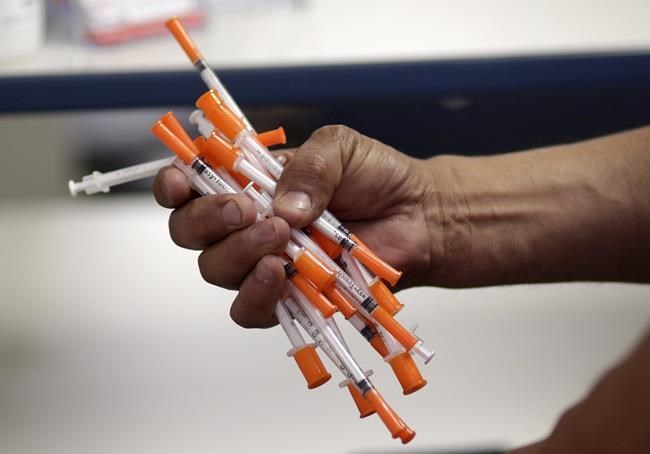TORONTO — It's too soon to brand Canada's new prison-exchange program as unconstitutional given that correctional authorities are still making changes to it as they roll it out, an Ontario court has ruled.
In a judgment that activists denounced as a setback for prisoner and public health, Superior Court Justice Edward Belobaba dismissed an application to find the recently introduced program violates the charter rights of drug-addicted inmates.
"Several material changes have already been made, including certain changes that were the target of the applicants' constitutional challenge," Belobaba said. "Passing judgment on the constitutionality of a (program) that is only one-quarter complete and whose final design remains uncertain would be neither prudent nor just."
Groups including the Canadian HIV/AIDS Legal Network and former inmate Steven Simons, who said he contracted hepatitis C while in prison, launched the case in 2012. At the time, Correctional Service Canada had a blanket ban on sterile injection equipment for drug users.
Since then, correctional authorities have accepted that illegal drugs and injection use are a fact of life in prisons, and that providing sterile equipment helps prevent diseases spread by shared needles.
Corrections began rolling out their harm-reduction program in June 2018 and had made it available in 11 of 43 institutions until the COVID-19 pandemic forced a hiatus in March.
Simons and the others argued the program was ineffective and unconstitutional because authorities failed to recognize it as essential health care, and that guards would know who was participating and single the person out for added scrutiny. They argued participation could hurt their release chances.
Belobaba rejected the applicants' call that security staff be kept in the dark about an inmate's needle use.
"There is evidence before me that inmates can and do make weapons out of almost anything, especially sharp objects," Belobaba said. "I have no difficulty concluding that there is a rational connection between the security and safety objectives of the impugned legislation."
He also said no evidence was presented to show prisoners were reluctant to take part in the exchange program because they feared a lack of confidentiality.
Among changes already made is that authorities have decided against sharing participant information with guards and the parole board.
In a statement on the ruling, Simons said he was worried "prisoners will continue to lack access to injection equipment, which means people will continue to share needles."
The Canadian HIV/AIDS Network called the ruling disappointing. Clean needles were still unavailable in three-quarters of the country's federal prisons, it said.
The network also called the program "seriously flawed" because it violates prisoner confidentiality and inmates would not trust it.
The group, which said it was considering an appeal of Belobaba's ruling, also called the rollout woefully inadequate.
This report by The Canadian Press was first published May 1, 2020.
Colin Perkel, The Canadian Press



